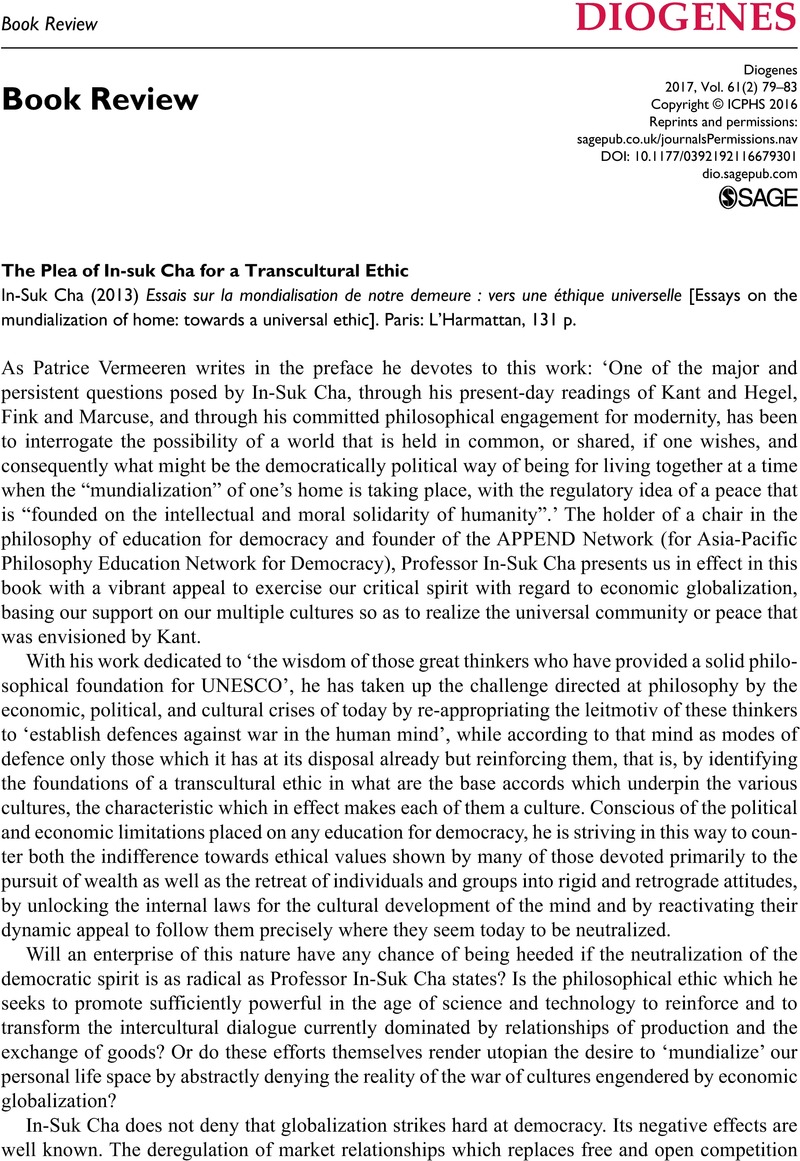No CrossRef data available.
Article contents
The Plea of In-suk Cha for a Transcultural Ethic - In-Suk Cha (2013) Essais sur la mondialisation de notre demeure : vers une éthique universelle [Essays on the mundialization of home: towards a universal ethic]. Paris: L’Harmattan, 131 p.
Review products
In-Suk Cha (2013) Essais sur la mondialisation de notre demeure : vers une éthique universelle [Essays on the mundialization of home: towards a universal ethic]. Paris: L’Harmattan, 131 p.
Published online by Cambridge University Press: 01 January 2024
Abstract
An abstract is not available for this content so a preview has been provided. Please use the Get access link above for information on how to access this content.

- Type
- Book Review
- Information
- Diogenes , Volume 61 , Issue 2: Trends and Debates in Contemporary Epistemology , May 2014 , pp. 79 - 83
- Copyright
- Copyright © ICPHS 2016
References
Cha, I-S (2012) The Mundialization of Home in the Age of Globalization: Towards a Transcultural Ethics. Berlin/Zurich: LIT Verlag.Google Scholar
Cha, I-S (2013) Essais sur la mondialisation de notre demeure : vers une éthique universelle []. Paris: L’Harmattan.Google Scholar
Nussbaum, M (1997) Cultivating Humanity: A Classical Defense of Reform in Liberal Education. Cambridge, MA: Harvard University Press.Google Scholar
Ricœur, P (1981) Lectures on Ideology and Utopia, ed. Taylor, George H. New York: Cambridge University Press.Google Scholar


